Last updated on October 18th, 2023 at 06:09 pm
Difference between PCM, Engine Control Module, Electronic Control Unit & Powertrain Control Module PCM
For vehicle owners, it is crucial to understand the distinctions between Powertrain Control Modules (PCM), Engine Control Modules (ECM), and Engine Control Units (ECU). These control units serve as the brains of your vehicle, overseeing various systems and functions to ensure optimal performance and efficiency. A faulty PCM, ECM, or ECU can result in significant problems such as reduced fuel efficiency, failed emission tests, and issues with ignition or transmission. By comprehending these components, vehicle owners can proactively identify potential issues, ensure proper maintenance, and prevent costly repairs.
While PCM, ECM, and ECU commonly refer to the same subject, which is the Engine Computer, there exists a subtle differentiation between these terms. Typically, the term ECU is associated with Asian car manufacturers, while ECM and PCM are predominantly used for Chrysler modules. Some sub-brands of General Motors also employ the term “PCM” for their products. From an engineering standpoint, these terms also carry distinct meanings. By any chance, are you researching this due to recent check engine light problems?
II. What is ECM/ECU?
The Electronic Control Module (ECM), otherwise known as the Engine Control Unit (ECU), is the technological brain powering your vehicle. These units are responsible for controlling multiple aspects of your vehicle’s operation, including the ignition system, fuel injection, emission systems, and various sensors.
The primary function of the ECM/ECU is to optimize the engine’s performance to ensure fuel efficiency and reduce emissions. It does this by continuously receiving, processing, and responding to signals from numerous sensors within the vehicle. For example, should the oxygen sensor signal a high level of unburned oxygen in the exhaust, the ECM/ECU may adjust the fuel injection accordingly to maintain an optimal air-fuel ratio.
Beyond this, the ECM/ECU also plays a role in troubleshooting and maintenance. When a problem arises in the engine or related systems, it’s often the ECM/ECU that triggers the ‘check engine’ light on the dashboard. By connecting a diagnostic tool, technicians can read the error code generated by the ECM/ECU, which guides them in identifying and addressing the specific problem.
III. What is TCM?
The Transmission Control Module (TCM) is another critical component of your vehicle’s intricate control system. TCM is primarily responsible for managing the operations of the transmission system. It works closely with the engine control module to ensure seamless gear shifting, optimizing performance while minimizing fuel consumption and emissions. The TCM achieves this by continuously receiving and interpreting signals from various sensors, including the vehicle speed sensor and throttle position sensor. Based on this information, it adjusts the timing of gear shifts and the operation of the automatic clutch to ensure smooth, efficient driving.
In the early days of automotives, cars were predominantly equipped with manual transmissions, requiring drivers to manually control gear shifting based on their judgment of speed, load, and road conditions. With the advent of the TCM, this process has been automated, leading to enhanced fuel efficiency, reduced driver workload, and improved overall vehicle performance.
As technology has advanced, TCMs have evolved significantly. Early TCMs were basic, controlling only a limited number of shifts. However, modern TCMs are highly sophisticated, capable of managing a vast array of tasks, including predictive gear shifting, adaptive shift algorithms, and even controlling continuously variable transmissions (CVTs). This progression underscores the continual evolution of automotive technology, with TCMs playing a pivotal role in enhancing driving convenience, performance, and efficiency.
IV. What is PCM?
The Powertrain Control Module (PCM) is an essential part of your vehicle’s electronic management system. Often considered the vehicle’s brain, the PCM is a multifunctional controller that oversees and manages both the Engine Control Module (ECM) and the Transmission Control Module (TCM). This integrated system allows for seamless coordination between the engine and transmission systems, resulting in optimized fuel efficiency and performance.
While the ECM is primarily responsible for engine performance and emissions controls, and the TCM manages the automatic transmission operations, the PCM consolidates these functions into a single unit. By doing so, it enables real-time synchronization between the engine and transmission systems, allowing for precise and instantaneous adjustments that maximize vehicle performance and fuel economy.
For example, based on sensor readings, the PCM can adjust the fuel injection rate, spark timing, and shift points to maintain optimal fuel efficiency and performance even under changing driving conditions. It can also identify and store error codes from the engine or transmission system, triggering the check engine light when an issue arises. These error codes can then be read by technicians using a diagnostic tool, aiding in the troubleshooting process.
The integration of the PCM into a vehicle’s control system underscores the sophistication of modern automotive technology. It’s a testament to the industry’s ongoing commitment to enhancing vehicle performance, efficiency, and overall driving experience. As technology continues to evolve, so too will the capabilities and complexities of modules like the PCM.
ECM and PCM (Powertrain Control Module) on the other hand controls several different aspects of the vehicle. Usually, it’s Engine & Transmission. Sometimes, it may even be the steering and emissions systems, too. By allocating control of all the systems in one unit, the PCM can better regulate their functions (ex. when the PCM commands to change gears, it can pull back the throttle to get the shift smoother). The result is better fuel economy and power delivery.
Even though a replacement OEM ( Original equipment manufacturing) PCM may seem like a single assembly from the outside, most of them combine a separate ECU and TCM, each of them has a dedicated processor and programming memory. They operate independently throughout the unit operations, sharing data in case a certain function expects both systems to work in tandem. It also has a great benefit for tuners, because it means they can program one system and leave another unaffected.
V. OEM Assemblies
In most original equipment manufacturer (OEM) assemblies, the Powertrain Control Module (PCM) is an integrated system combining the functions of the Engine Control Unit (ECU) and the Transmission Control Module (TCM). Each of these modules comes with its own dedicated processor and memory. This unique configuration offers a range of benefits, especially for automotive tuners.
The combined processing power and memory of the ECU and TCM within a single PCM allows for more precise and comprehensive control over the vehicle’s performance. It enables tuners to make precise adjustments to both engine and transmission parameters simultaneously, ensuring optimal performance, fuel efficiency, and emissions control.
Moreover, with separate processors and memory for each unit, tuners can make adjustments to either the engine or transmission systems independently without affecting the performance of the other. This ability to make independent modifications offers a high degree of flexibility and precision, allowing tuners to extract maximum performance from the vehicle.
Furthermore, having all this functionality within a single PCM simplifies the tuning process. It reduces the complexity of interacting with multiple separate modules, saving time and effort, which is particularly beneficial in a professional tuning environment where efficiency is crucial. It also minimizes potential compatibility issues that might arise when coordinating different modules.
Therefore, the integration of the ECU and TCM within an OEM PCM brings significant advantages for automotive tuners, enhancing their ability to optimize vehicle performance while simplifying the process. As technology continues to evolve, the capabilities of such integrated systems are likely to expand even further, providing tuners with even more advanced tools for performance optimization.
VI. ECU as a Generic Term
In the automotive electronics industry, the term Engine Control Unit (ECU) often carries a broader meaning beyond its strict definition. While it is primarily understood to refer to the module controlling engine operations, ECU can also be used as a generic term encompassing various other control modules within a vehicle’s electronic system. Modules like the Body Control Module (BCM) and Chassis Control Module (CCM) can fall under the umbrella of what is generically referred to as an ‘ECU’.
The BCM, for instance, is responsible for managing the functions related to the vehicle’s body, such as controlling the power windows, locks, and lights. Similarly, the CCM oversees the operations of the chassis systems, including the suspension and braking systems. These modules, like the ECU, play integral roles in managing and optimizing various aspects of a vehicle’s performance.
By using ‘ECU’ as an umbrella term to represent all these different control modules, industry professionals can engage in more generalized discussions about vehicle electronics, without necessarily diving into the specifics of each individual module. However, when it comes to diagnosing issues or fine-tuning performance, understanding the distinct functions of each module, whether it’s a PCM, BCM, or CCM, is crucial. As automotive technology continues to advance, the capabilities of these modules are likely to expand further, underscoring the importance of understanding the nuances of these critical components.
VII. Modern Vehicle Complexity
Modern vehicles embody a complex network of embedded systems, with up to 80 different Engine Control Units (ECUs) operating simultaneously. Each ECU oversees a specific function, ranging from managing the fuel injection system to controlling the air conditioning, ensuring that every aspect of the vehicle operates efficiently and harmoniously. This intricate web of ECUs allows for precision and control that were unimaginable in vehicles of the past. It provides for enhanced performance, safety, convenience, and comfort, setting a new standard in the automotive world. However, the high degree of complexity also heightens the importance of expert understanding and maintenance. Technicians must be proficient in diagnosing and addressing issues within this expansive network of ECUs, further exemplifying the evolution of automotive technology and the demands it places on industry professionals. As cars become increasingly smart and interconnected, the roles of these numerous ECUs will continue to evolve and expand, driving the future of automotive innovation.
In summary, the Powertrain Control Module (PCM), Engine Control Unit (ECU), and generic term Engine Control Units (ECUs) all play distinct but interconnected roles in the operation and performance of modern vehicles. The PCM, an integrated system that combines the functions of the ECU and the Transmission Control Module (TCM), allows for precise control and optimization of vehicle performance, particularly beneficial for automotive tuners. On the other hand, the ECU, while primarily controlling engine operations, can also refer broadly to various control modules within a vehicle’s electronic system, including the Body Control Module (BCM) and Chassis Control Module (CCM). This generic use of ‘ECU’ facilitates generalized discussions about vehicle electronics among industry professionals.
Each of these control units contributes to the complex network of systems within modern vehicles, working in harmony to provide enhanced performance, safety, convenience, and comfort. With up to 80 different ECUs operating simultaneously in some vehicles, the sophistication and complexity of today’s automotive technology are unprecedented. This complexity underscores the necessity for expert understanding, maintenance, and repair. Technicians must be proficient in diagnosing and addressing issues within this expansive network of modules. As the automotive industry continues to evolve, the roles and capabilities of these ECUs will likewise expand, forming the foundation for continued innovation in performance optimization and vehicle design.
- Body Control Module (BCM)
- Brake Control Module (BCM or EBCM)
- Central Control Module (CCM)
- Central Timing Module (CTM)
- Engine control unit /Engine Control Module (ECM and PCM)
- General Electronic Module (GEM)
- Powertrain Control Module (PCM)
- Suspension Control Module (SCM)
- Fuel Injection Control Unit (Fuel mixture)
- Transmission Control Module (TCM), etc.
- OEM ( Original Equipment Unit ) ECU ( Electronic Control Unit)
Sometimes one assembly consolidates several different systems from this module list. Most modern cars have up to 80 different ECU Units.
Your engine control module is not something you should take lightly when it comes to your vehicle, repair or replace it as soon as possible. Do not ignore your check engine lights ! If you’re in search with for a replacement PCM then you’re in luck check out our full catalog of Control Modules to find what exactly fits your vehicle, and or you can always shoot us any question here.



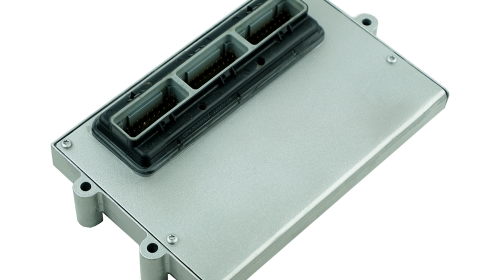

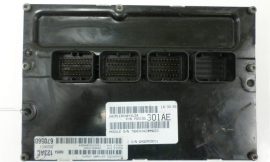

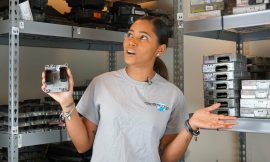


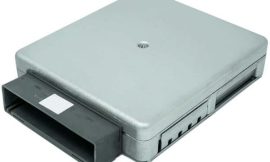


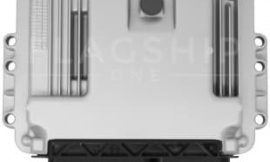
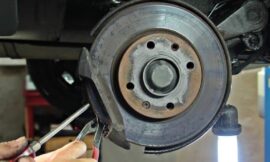
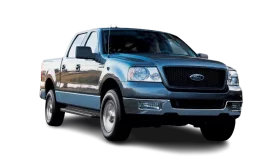
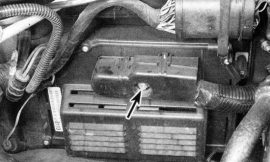

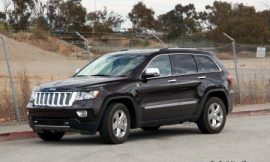
What a great experience! from order to my door step three days. unit solved the problem and did not have to ship old one back for deposit. as a shop owner I give them five stars and 10 out of ten rating
fuel pump puessure not starting at various times… Replaced filter, pressure regulator, fuel pump, fuel pump controller module in that order Starts sometimes good… and starting the past experience of not starting at all, or starting and running at low rpm and no power..
mechanic suggested ECM might need replacing…
Do you offer an ECM for a 2003 Polaris Frontier snowmobile 800 cc.